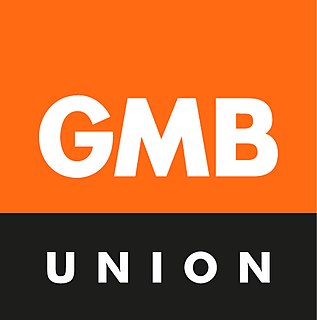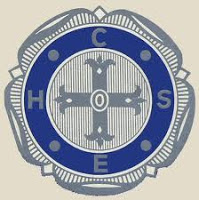A trade union, often simply called a union, is an organization of workers who have come together to achieve many common goals, such as protecting the integrity of their trade, improving safety standards, and attaining better wages, benefits, and working conditions through the increased bargaining power wielded by the creation of a monopoly of the workers. Trade unions typically fund the formal organization, head office, and legal team functions of the trade union through regular fees or union dues. The delegate staff of the trade union representation in the workforce are made up of workplace volunteers who are appointed by members in democratic elections.

The Winter of Discontent took place during 1978–79 in the United Kingdom. It was characterised by widespread strikes by private, and later public, sector trade unions demanding pay rises greater than the limits Prime Minister James Callaghan and his Labour Party government had been imposing, against Trades Union Congress (TUC) opposition, to control inflation. Some of these industrial disputes caused great public inconvenience, exacerbated by the coldest winter for 16 years, in which severe storms isolated many remote areas of the country.

Unison, stylised as UNISON, is the second largest trade union in the United Kingdom with almost 1.3 million members. UNISON's members work predominantly in public services, including local government, education, health and outsourced services.
Collective bargaining is a process of negotiation between employers and a group of employees aimed at agreements to regulate working salaries, working conditions, benefits, and other aspects of workers' compensation and rights for workers. The interests of the employees are commonly presented by representatives of a trade union to which the employees belong. The collective agreements reached by these negotiations usually set out wage scales, working hours, training, health and safety, overtime, grievance mechanisms, and rights to participate in workplace or company affairs.
In British politics, an affiliated trade union is one that is linked to the Labour Party. The party was created by the trade unions and socialist societies in 1900 as the Labour Representation Committee and the unions have retained close institutional links with it.

The GMB is a general trade union in the United Kingdom which has more than 631,000 members. Its members work in nearly all industrial sectors, in retail, security, schools, distribution, the utilities, social care, the National Health Service (NHS), ambulance service and local government.

The Canadian Labour Congress, or CLC is a national trade union centre, the central labour body in Canada to which most Canadian labour unions are affiliated.
The National and Local Government Officers' Association was a British trade union representing mostly local government "white collar" workers. It was formed in 1905 as the National Association of Local Government Officers, and changed its full name in 1952 while retaining its widely used acronym, NALGO. By the late 1970s it was the largest British white collar trade union, with over 700,000 members. It was one of three unions which combined to form UNISON in 1993.

The National Union of Public Employees (NUPE) was a British trade union which existed between 1908 and 1993. It represented public sector workers in local government, the Health Service, universities, and water authorities.

Clement Attlee was invited by King George VI to form the Attlee ministry in the United Kingdom in July 1945, succeeding Winston Churchill as Prime Minister of the United Kingdom. The Labour Party had won a landslide victory at the 1945 general election, and went on to enact policies of what became known as the post-war consensus, including the establishment of the welfare state and the nationalisation of some industries. The government's spell in office was marked by post-war austerity measures, the violent crushing of pro-independence and socialist movements in Malaya, Vietnam and Indonesia, the grant of independence to India, and engagement in the Cold War against Soviet Communism.

The New Zealand Council of Trade Unions is a national trade union centre in New Zealand. The NZCTU represents 360,000 workers, and is the largest democratic organisation in New Zealand.

The name National Health Service (NHS) is used to refer to the free public health services of England, Scotland and Wales, individually or collectively. Northern Ireland is known as 'Health and Social Care' to promote its dual integration of health and social services.
The Hospital and Welfare Services Union (HWSU) was established in 1918 as the Poor Law Workers Trade Union. It recruited from all ranks in the poor law service. Within a year it claimed 10,000 members.
George Hardy was a Canadian-American labor leader who was president of the Service Employees International Union (SEIU) from 1971 to 1980. At the time of his death, SEIU had grown to become the fifth-largest affiliate of the AFL-CIO. Hardy was a vice president of the AFL-CIO from 1972 to 1980, and a member of its executive council. He was a former member of the Democratic National Committee and the California Democratic State Central Committee.
Indian labour law refers to laws regulating labour in India. Traditionally, Indian government at federal and state level have sought to ensure a high degree of protection for workers, but in practice, this differs due to form of government and because labour is a subject in the concurrent list of the Indian Constitution.

The Irish Congress of Trade Unions, formed in 1959 by the merger of the Irish Trades Union Congress and the Congress of Irish Unions, is a national trade union centre, the umbrella organisation to which trade unions in both the Republic of Ireland and Northern Ireland affiliate.
David Oliver Williams is a retired Welsh trade union leader.
Ernest Albert George Spanswick was a British trade unionist.
Francis Joseph Lynch was a British trade union leader and politician.
Clifford Frank Comer was a British trade unionist.









